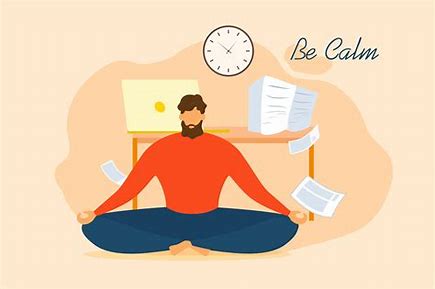25 April 2022

Hello everyone, welcome to our next wellbeing blog.
This month we are focusing on how we can manage stress and stressful situations.
At Prospect House, we have used the ‘5 ways to wellbeing’ as a framework for our approach to Mental health and wellbeing. This comprises of
5 different elements:
Connect - Making time for relationships with friends, family and colleagues and elsewhere within your community.
Be active - Exercising, physical activity and enjoying good health.
Take notice - Being aware of the world around you and reflecting on your experiences.
Keep learning - Trying new things and challenging yourself.
Give - Doing something nice for others, volunteering, making yourself and others happy
What is stress?
Stress is a feeling of being under abnormal pressure. This pressure can come from different aspects of your day to day life. Such as an increased workload, a transitional period, an argument you have with your family or new and existing financial worries. You may find that it has a cumulative effect, with each stressor building on top of one another.
During these situations you may feel threatened or upset and your body might create a stress response. This can cause a variety of physical symptoms, change the way you behave, and lead you to experience more intense emotions.
Stress affects us in a number of ways, both physically and emotionally and in varying intensities.
How can I identify the signs of stress?
Everyone experiences stress. However, when it is affecting your life, health and wellbeing, it is important to tackle it as soon as possible, and while stress affects everyone differently, there are common signs and symptoms you can look out for:
- feelings of constant worry or anxiety
- feelings of being overwhelmed
- difficulty concentrating
- mood swings or changes in your mood
- irritability or having a short temper
- difficulty relaxing
- depression
- low self-esteem
- eating more or less than usual
- changes in your sleeping habits
- using alcohol, tobacco or illegal drugs to relax
- aches and pains, particularly muscle tension
- diarrhoea and constipation
- feelings of nausea or dizziness
- loss of sex drive.
Tips to handle stress
1
Know your priorities
Be clear about your priorities. Practice holding healthy boundaries that stop you from taking on too much, or committing yourself to work that doesn’t align with your personal priorities. This can make a real difference to your levels of stress and exhaustion. Practice saying no.
2
Be aware of what stresses you out
Make a list of events that leave you emotionally drained, with one or two ways to reduce the stress for each. When they occur, use them as an opportunity to practise your stress-reduction techniques and note what works.
3
Forgive yourself: don’t dwell on past mistakes
Feelings of guilt, remorse and regret cannot change the past, and they make the present difficult by sapping your energy. Be kind to yourself. Make a conscious effort to do something that brings you joy or peace.
4
Don’t bottle up anger & frustrations
Express and discuss your feelings. This could mean addressing difficult situations with colleagues, or talking to a friend who is a trusted sounding board. Just don’t let it fester. Feelings are heavier when you carry them alone.
5
Set aside time each day for hobbies or exercise
Gentle repetitive exercise, such as walking, swimming or cycling are good to relieve stress. Meditation, yoga, pilates and dance are also excellent. Find what suits you best and make it a habit. Hobbies that focus attention are also good stress relievers.
6
Take your time
Frenzied activities lead to errors, regrets and stress. Request time to orient yourself to a new task or responsibility at work. If rushed, ask people to wait until you are ready. Plan ahead to arrive at appointments early, composed and having made allowances for unexpected hold-ups.
7
Practice gratitude
Try and find something positive about each work day – even the tough ones. Visualise situations you have handled well, and hold those memories in your mind when going into stressful situations.
8
Cut down on drinking, smoking, sedatives & stimulants
These vices only offer temporary relief and don’t solve problems. They can create mental and physical health problems in the long term. Consider the affects you are looking for (sedation or stimulation) and how else you can achieve them.
Posted by Robin Anthony
Category: Health & Well-being
.jpg)
